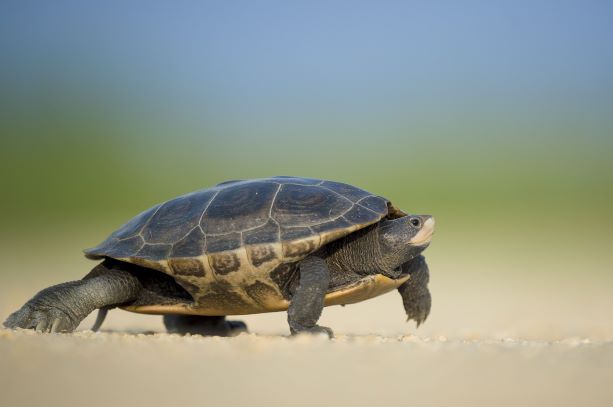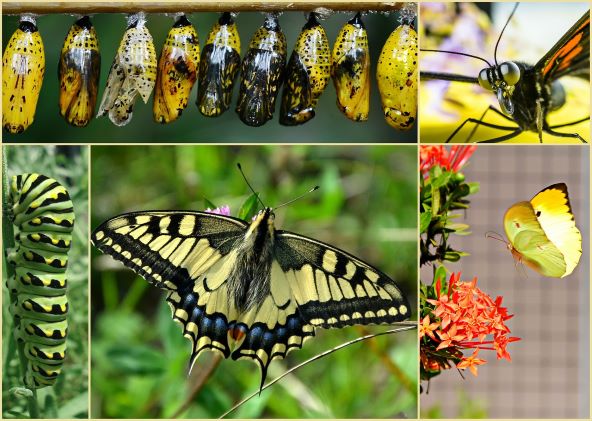
Whether it was fishing trips with dad, or envying over that ridiculously cool leather jacket, visiting the zoo, or the tempting meat & dairy food choices we made—most of us are/were guilty of participating in carnism & supporting the exploitation of animals in one form or another.
For most people, going vegan and rejecting animal cruelty may not even cross their minds until later in life. So ubiquitous is the societal acceptance of using animals for our own gain, be it for food or for other purposes.
When people enjoy a steak at their favorite restaurant, admiring a tropical bird in an aviary, or purchasing a silk scarf, they may not stop to think of the impact of those choices and actions have on the species that exist behind a psychological wall built by the society at large. It is what goes behind the scenes, the dark activities that are kept very deliberately secret that we need to shed light on.
Animal Sentience, How Should Animals be Treated?

Let’s take a look at these emotions / mental states:
- Love
- Enthusiasm
- Pleasure
- Joy
- Devotion
- Trust
- Loyalty
- Anticipation
- Fear
- Surprise
- Jealousy
- Anger
- Pain
- Suffering
- Sadness
- Grief
- Sympathy
Now look at these activities & skills:

- Finding food
- Communication
- Navigation
- Use of tools
- Attracting and impressing a partner
- Produce & take care of offspring
- Socialization
- Teamwork
- Architecture/building structures
- Using survival strategies
- Making sacrifices for the benefit of others
You get where we’re going here – these are not just human emotions, skills, and activities. All of the above are demonstrated clearly and repeatedly by various animals. If you’ve ever observed animals or had pets that you loved dearly, you know this to be true.
This is why many dog/cat lovers are appalled by the idea of consuming cats and dogs by certain countries. Probably because they know how lively and sentient these pets can be.
As ironical as it can be, guess what? So are cows, pigs, chickens, sheep, and turkeys. Veganism is about acknowledging the sentience of animals and respecting their rights.
The renowned naturalist Charles Darwin often made references to animals’ ability to feel pain and their many other similarities with us. Science has shown exactly this over and over again.
Animal sentience science fraternity accepts that vertebrate species (animals with a central nervous system) are sentient [1]. Scientists are now finding complex neurons, which were once believed to be unique only to humans, in several species of primates, cetaceans (whales, dolphins, orcas, etc.), and elephants.
There is enough evidence to suggest that invertebrates too can be sentient as they possess a nervous system with many neurons. Just because the anatomy is different it is not a valid reason to disregard their sentience.
Personally, we don’t need a scientist to tell us that animals are capable of joy, empathy, fear, pain, or can learn new skills. We are constantly amazed not just by our own observations of fellow animals, but those we see & understand by means of documentaries and reading.
How Animals Considered as Food are Sentient

- Mother cows distressfully cry and search for their calves when the baby and the mom are separated and calves being sold for veal. Just picture yourself as a mom after going through all the emotional distress, the contractions, the pain, the labor & delivery, finally you get to see your baby who becomes your new world. Then within the first 24 hours, your little one will be separated from you and you will no longer see or own your baby because others decide who gets your milk and who owns the baby. We will leave it for you to feel what you would be going through when your joyful new world comes down upon you.
- Apparently, cows get excited when they learn to move a lever in a drinking fountain when they are thirsty or when they’re hungry, push a button with their heads to free the grain.
- Hens can signal (communicate) danger to her chicks and even may sacrifice her own life to save the chicks. So next time when someone says don’t be a “chicken” tell how awesome chickens are and to watch “chicken run”.
- Before they even hatch, chicks are able to have some form of communication with their mother.
- Pigs love listening to music, play with each other and have mock fights like dogs.
- Cows tend to select their leaders based on ability, maturity, and good social qualities, while harassment, selfish behavior, size, and strength are not considered proper qualities for leadership. Yes, they prefer genuine leaders to fake leaders. A leaf out of their book may help when we choose our leaders.
- When turkeys are in farm sanctuaries, they identify their pet visitors and will run to welcome them.
Sentience of Non-Food Animals,
- Parrots can solve complex puzzles
- Chimpanzees that can be generous
- Mice showing empathy towards their own
- Monkeys that become furious over the injustice of receiving a lesser food reward for their efforts than their neighbors
- Several species show optimism and pessimism [2] (starlings, dogs, honeybees)
- Male lions kill hyenas and don’t eat them sending a signal to other hyenas to show, who is in charge
- A pack of hyenas can easily chase away lionesses from a carcass to show the power of teamwork

To us, and for many others who adopt a vegan diet, there’s no question about sentience. But for others, we hope the evidence shown by research on animal sentience should help.
Even without the loads of scientific evidence that indicate other animals are sentient and have feelings just as deeply as we do – shouldn’t all creatures be given the benefit of the doubt first? Should we not give animals the rights first, and ask questions later? Should we not cause any damage before we make judgments, just in case?
Research on animal sentience to understand the true range of abilities and experiences of animals may be fascinating from a scientific perspective, but most importantly it should be used in favor of animal rights. With the added awareness of this understanding, it becomes increasingly unethical and illogical to continue to cause animals any harm.
What are Animal Rights?
Animal rights in its simplest form would be the idea that non-human animals are entitled to their own life and freedom, due to their capacity to experience life.
According to Peter Singer, the basic principle of equality requires equal consideration.
Therefore, every creature with a will to live has a right to live free from pain and suffering. After all, life belongs to the creature that carries, lives & experiences it; hence they have every right for it.
Do note that animal rights and animal welfare are two different positions. While animal rights do not consider animals as property and try to abolish commodity status, animal welfare advocates the humane treatment of animals in their use for humans.
Animal Cruelty Facts (The Norm & Reality)

Let’s try & keep this brief and get a perspective from many industrial animal farms’ point of view (do note that this may not necessarily be the attitude of all farmers who may do their best to maintain animal welfare, though animal welfare in animal agriculture disregards the premises of animal rights)
- Chickens, pigs, cows, turkeys, etc. are all sentient beings, but we just have to treat them as commodities to meet the demand and make profits.
- Piglets get stressed by overcrowded conditions. Let’s castrate them shortly after birth, amputate their tails and clip their teeth so they don’t cause any damage or increase costs to our ‘end products’.
- Space is expensive. Let’s keep our egg-laying hens in multi-story battery cages – the consumer still pays the same price irrespective of the chickens suffering osteoporosis. Most of the eggs consumed in the US are produced this way, and we’ve got to stay competitive here.
- Whether a veal calf moves in its pen or raised immobilized in veal crates, who cares?
- A broiler chicken that dies of heart failure because we pumped it with steroids doesn’t fail to attract a buyer!
- These male chicks will never lay eggs – grind them in the macerator like useless pieces of garbage.
But dairy cows lead happy lives, frolicking out in the fields with their big-eyed calves like nature intended, right?
Deep down we think you already know the truth. To produce the most milk possible, you need to keep your dairy cows pregnant as much as possible. That inevitably results in calves. The calf will just live 4-5 years if it’s a female. That means it has the potential to produce milk, great!
But taking milk from mom to grow that baby calf into a dairy cow just doesn’t make good business sense now does it? So let’s take it away from mom after a day (come on, we don’t want to be cruel here!) and feed it a replacement milk substitute that will keep it alive long enough until it produces profits – but no longer than that.
The normal lifespan of a cow is around 20 years, but due to the horrendous conditions they are forced to live in; they cease to become ‘profitable’ after about 5 years. Then it’s time to show gratitude for producing profits – the slaughterhouse.
If that calf was born male… well.
Humans seem to be the only adult mammal that likes having milk derived from other mammals even after infancy. This is despite 75% of the world population, apparently being lactose intolerant which is not considered abnormal!
Premature Death Caused By The Factory Farms
Chickens often live to ten years of age. A broiler chicken, on the other hand, is pumped so full of growth hormones, and antibiotics that they grow faster than their heart or skeletal systems can support. They are usually slaughtered at just six weeks of age.
Pigs can live to well over 15 years of age under natural circumstances – yet factory farmed piglets are destined for slaughter as young as 4-6 months.
To avoid harmful behavior in an unnatural environment with crowded confinements and to keep profits over animal’s well-being, farmers routinely make use of the following convenient solutions:

- High stocking density
- Restricted movement
- Castration
- Dehorning
- Tusk trimming
- Beak-trimming
- Blinders
- Branding
- Ear tagging
- Nose ringing
- Tail docking
- Tongue resection
- Teeth cutting
The chances are most of you would never be able to inflict any of these procedures yourself – yet every time you buy prettily packaged meat, dairy or egg products from your supermarket, you support that industry.
Industrialized Factory Farming Cruelty on a Global Scale
With these industries, consideration for sentience has ceased to exist and treat animals as commodities, that come off a highly efficient production line. Upwards of 60 billion, yes, billions of lands animals and over a trillion marine animals are killed every year for human consumption.
The human population is about 7.5 billion as of 2017. If those animals considered equivalent to humans in numbers, it is like committing a mass murder that would eradicate the entire human population in a span of, one and a half months (without considering the marine animals).
Besides the violation of animal rights, factory farming is a major cause of environmental pollution as well.
How to Stop Animal Cruelty and What We Can Do About It
To stop animal cruelty, we need to start with what’s on our plate! If going vegan seems overwhelming for the moment, you can always start with incremental steps towards an ultimate vegan lifestyle. We encourage you to read our post about transitioning to a vegan diet, and it’s a lot easier than you may think.
You should also note that following a vegan diet not only saves animals, but it’s healthful according to the Academy of Nutrition and Dietetics[3]. Therefore it makes no sense to consume animals even on health grounds.
Once You’ve Changed Your Diet, You May Consider Avoiding Other Forms of Animal Exploitation:


- Circuses, zoos, aquariums and sea worlds
- Laboratory testing
- Recreational and sport fishing
- Hunting / Poaching
- The leather, skin, fur, goose down, silk and wool industries
- Using animals for film and television productions
- By-catch as a result of fishing
- Bull, cock, dog fighting, and baiting.
- Toro de fuego / Toro júbilo (fire bull)
- Rodeos
- Using for military and security functions
- Using for scientific experimentation and cosmetic / household products testing
- The keeping of pet/leisure animals (if your motive is to help an injured, deprived or abused animal & give life, there is no issue. The issue is supporting commercial pet/leisure animal breeding industry which exploits animals e.g. puppy mills)
- Use for transportation
Embracing a vegan lifestyle means recognizing above activities as exploitation. If you do care, then not supporting financially or getting involved in such activities are the best ways to show it.

Final Thoughts
Some may have this wishful expression – the animal ‘gave up its life’ for us. But in reality, they didn’t. We took their lives, and we have no excuse for doing so. Discriminating against animals or believing them to be inferior because they belong to a different species is known as speciesism and is as unscientific and unjust as racism or sexism.
Once you’ve changed what’s on your plate, you might find it’s not just your body that starts changing, but the way you think too as you’re driven by compassion for animals. By omitting certain foods, you suddenly start to think about them–”that chicken curry I ate actually used to be a living animal and chances are, that creature suffered terribly in life.”
You’ve made an important connection here. What I buy, what I eat, and how I choose to live my life have a direct impact on other sentient beings with whom I share this planet.
By avoiding animal products you also boldly say to the corporations which make animals suffer, that you will no longer support it!
You’re not giving up animal products – you’re gaining back your health. You’re not giving up burgers and fried chicken – you’re gaining clarity, peace of mind, and freeing yourself from some of the burdens of guilt. You’re not giving up on life – you’re saving lives.
Perhaps, this quote puts it best,
“It is just like man’s vanity and impertinence to call an animal dumb because it is dumb to his dull perceptions.” – Mark Twain
Recommended Posts:
- 6 Convincing Reasons to be Vegan
- 5 Best Vegan Documentaries
- 10 Famous Farm Animal Sanctuaries in USA
- Vegan/Animal Charities You Can Help!
- Vegan Meat
- Vegan Milk
- Vegan Eggs
- Vegan Cheese
References:
[1] https://www.ncbi.nlm.nih.gov/pmc/articles/PMC4494284/
[2] https://www.ncbi.nlm.nih.gov/pmc/articles/PMC3158593/
[3] http://www.eatrightpro.org/resource/practice/position-and-practice-papers/position-papers/vegetarian-diets






